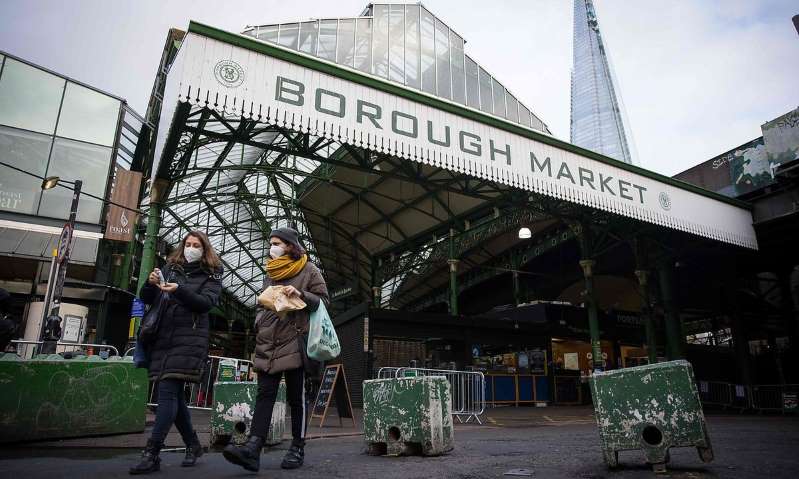
Despite a final spurt towards the end of the year, the British economy contracted more sharply in 2020 than at least since the Second World War. The gross domestic product (GDP) collapsed by 9.9 percent, as the national statistics office announced on Friday. “Today's figures show that the economy has suffered a severe shock from the pandemic that countries around the world have felt,” said Finance Minister Rishi Sunak. The economy picked up by 1.0 percent between October and December, twice as much as economists had expected, but the current lockdown is likely to put the brakes on companies and consumers again. The British central bank expects GDP to decline by four percent for the current quarter.
In comparison, GDP in the entire euro area fell by 6.8 percent in 2020. Great Britain not only has to cope with the consequences of leaving the EU, but also the effects of the corona pandemic. So far, over 115,000 people who tested positive for Corona have died – more than in any other European country.
Recovery not expected until spring
The ongoing restrictions due to the second corona wave are likely to put a damper on the economy again. While there are some positive signs of economic resilience over the winter, we know that the current lockdown continues to have a significant impact on many people and businesses, “said Treasury Secretary Sunak. Economists expect the economy to recover from spring, when more people are vaccinated and the global economy picks up. “Then consumers will spend significantly more,” said Kallum Pickering from Berenberg Bank.
Biggest minus since World War II
The 2020 production decline was the largest since official records began after World War II. Longer historical data from the Bank of England suggests that it was actually the biggest minus since 1709, when Britain suffered a “Great Freeze”.
The economic growth of 1.0 percent in the final quarter of 2020 benefited from the momentum generated by service providers, corporate production and the construction industry. In addition, according to the statistics office, government consumption and – to a lesser extent – corporate investment recovered. For comparison: The German economy grew slightly by 0.1 percent compared to the previous quarter at the end of 2020, while the entire euro zone had shrunk by 0.7 percent.

